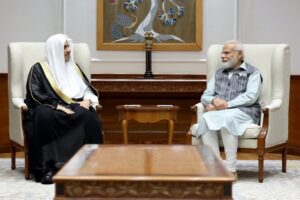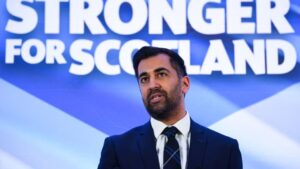Forecast 2015: Dr Adnan Chilwan
by: Adnan Chilwan*
Islamic finance has witnessed a remarkable growth over the last four decades since the establishment of Dubai Islamic Bank as the world’s first such entity. Fuelled by geographic expansion and increasing relevance of its products and services across many economic sectors, the industry’s assets have reached approximately $1.9 trillion at the end of the first half of 2014 and are expected to surpass the milestone of $2 trillion by the end of 2014.
Globally, Islamic finance now serves more than 70 countries, expanding not only in nations with majority Muslim populations, but also countries where the other ethnicities are more dominant, such as the United Kingdom and wider Europe, Japan, South Africa and Kenya. Africa appears to be a new emerging market for the industry which is gaining increasing regulatory support in North Africa, particularly Tunisia and Morocco as well as East Africa where Kenya plans to issue its debut sukuk in financial year 2015/16. Infrastructure developments in the countries in the East and North African region are set to fuel the growth of Islamic banking and finance as it gains momentum across the continent.
One of the greatest contributions of Islamic finance to the world of banking and finance has been the introduction of Islamic bond, or sukuk, to the debt capital markets. This phenomenon has clearly helped the industry in moving beyond its traditional markets. Given the wider liquid investor base for such an instrument, 2014 attracted debut issuances from markets such as Hong Kong, the UK, Luxembourg and South Africa, setting the platform for more global issuances in the coming future. As of end-September 2014, cumulative annual issuances in the global primary sukuk market has reached $94.65bn, outperforming the same period last year by an impressive 14.1 percent. In addition many countries are also seeing sukuk as a means to develop trade and investment links with Middle Eastern markets. For the first nine months of 2014, 19 jurisdictions tapped the sukuk market — the highest number in sukuk market history. This trend is expected to take the global issuances in 2015 past the $150bn mark.
Also Read: Saudi Arabia Wins Bid to Host World Expo 2030
As is the case with any fast-growing industry, certain challenges remain, which need to be overcome to ensure uninterrupted growth going forward and achieve the economies of scale currently seen in the conventional finance sector. An immediate one that comes to mind is harmonisation; the adoption of global best practices will be key to support the advancement of the industry. Furthermore, the increasing internationalisation of Islamic finance enforces the need to streamline regulatory and supervisory practices, financial reporting expectations and to develop mutual understanding in dealing with differences in Sharia opinions.
Another critical challenge is human capital. We need to ensure the continuous availability of high quality and trained resources for the industry to sustain its growth momentum. Over the past few years, we have seen a number of strategic collaborations and partnerships that are being forged by diverse market players and training institutions in order to bridge the gap between talent upbringing in institutions of higher learning and the industry’s requirements. These partnerships will continue to grow particularly with Dubai’s ambitions to become the global Islamic capital hub and having “knowledge economy” as one of its key pillars.
The halal market, which was valued at $3.2 trillion in 2012, is forecast to double to $6.4 trillion, suggesting substantial opportunities for Islamic finance in catering to this industry and its cross-border trading activity. The halal industry operates across a number of sectors including food, clothing, finance and tourism. Further, there is an increasing trend towards socially responsible investments where multilateral institutions such as the World Bank have done work to adapt sukuk for use in a variety of ethical pursuits, including advising the Dubai government on a funding strategy for the emirate’s green investment programme.
Recently in November, an immunisation programme secured a $500m issuance of sukuk, in the largest debut issue ever by a global non-profit organisation, under a broader trend to use the bond markets to fund development and humanitarian projects.
Also Read: 148 Products from Indonesia Promoted at Sarawat Superstore Jeddah
Clearly, expectations are high from this fast-growing industry as it continues to make tremendous forays in the world of banking and finance. This places a huge responsibility on the leaders in this field to play their role in a sincere and dedicated manner.(T/P009/P3)
Mi’raj Islamic News Agency (MINA)
Adnan Chilwan is the Chief Executive Officer of Dubai Islamic Bank, the United Arab Emirates’ largest bank as measured by assets and the world’s first shariah-compliant lender. He is notable chiefly for stabilizing the bank during the global financial crisis and overseeing its growth in subsequent years. Chilwan is frequently recognized as a strong influence on middle eastern business and finance, and he is a recognized spokesperson for the financial industry in the Islamic world.
Also Read: Packaging Industry Supports Halal Ecosystem


































 Mina Indonesia
Mina Indonesia Mina Arabic
Mina Arabic